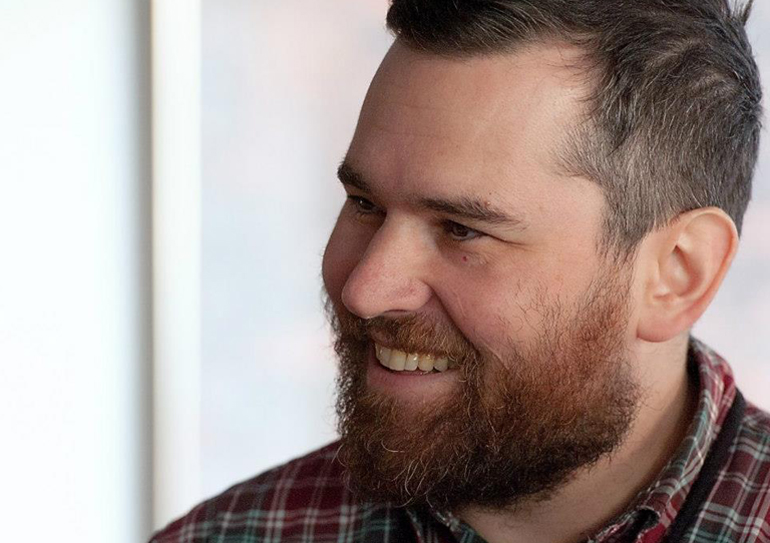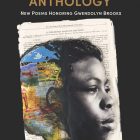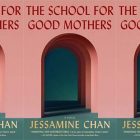The Space of Risk: An Interview With Jacob Wren

When I first encountered Montreal-based Jacob Wren and his work, it was in the mid-1990s, back when he was a Toronto poet known as Death Waits, composing a highly self-aware narrative lyric constantly in search of itself. By the end of the decade, he had shifted away from Death Waits, and seemingly from poetry as well, beginning to publish a series of novels including Unrehearsed Beauty (1998), Families Are Formed Through Copulation (2007), Revenge Fantasies of the Politically Dispossessed (2010), Polyamorous Love Song (2014), and Rich and Poor (2016). According to his website, he “makes collaborative performances, exhibitions, and literature.” The co-artistic director of Montreal-based interdisciplinary group PME-ART, he exists as a constantly moving target, exploring performance through collaboration, text, and multiple other means.
rob mclennan: One element of the author biography on your website that I found quite striking was the idea that your “performances, made collaboratively with other artists, engage with the struggle and paradox of ‘being oneself’ in a performance situation, with what it means to stand in front of an audience and speak honestly about the things one finds important, at the same time never afraid to show how vulnerable and nervous one might naturally feel in such a situation.” Is your own writing, including your novels, also composed as a series of performances on/about the self?
Jacob Wren: Yes, over the years many have described the literature I make as a kind of written performance, and this description very much resonates with me. What the performances we make collaboratively have in common with the books I write (somewhat) alone is that both have aspects of structured improvisation, both begin with some sort of structure in mind, a structure that most often changes over time, and then try to move as freely as possible within, around, and through the originally imagined structure. For example, with my novel Polyamorous Love Song (and I don’t think I’ve ever told anyone this before), the structure I began with is that each chapter will begin somewhere else, somewhere completely different, in a place in which we’re not sure if we’re in the same world as the previous chapter, but then somehow over the course of the entire book we begin to realize all the chapters are more-or-less connected. This is a very open structure with a lot of room to play. These days I often wonder if I prefer structures that are more open or less open. It’s unclear to me how much I want or don’t want to struggle with such things.
RM: How far does this element of performance extend? I’m thinking back to when we first met, in the mid-1990s, when you were still known as “Death Waits.” How much of your public and/or professional self is a performance? And how do you feel this is different from how other authors compose themselves?
JW: Well . . . the collaborative performance work I do is most often in and around “being yourself in a performance situation.” So I most often think of bringing myself—a self that might in some sense exist outside of art—into a performance setting. And when this self is placed there it is nervous, it is vulnerable, it is uncomfortable, it stutters and stammers. I feel extremely uncomfortable in life and even more uncomfortable when performing. (So uncomfortable that I often ask myself why I do it.) To describe this performing self I do also often think about how we are in fact performing all the time. How we perform one way at a job interview and a different way at a party surrounded by close friends. And how such performing relates to our feelings and questions around authenticity and truth and trust.
But I suppose you’re asking something else. To what extent I see my entire life as a performance. As you mention, I lived and worked under the name Death Waits for about ten years (approximately from 1986 to 1996). It’s only in retrospect that I see this period as a performance, the most performative aspect of it being that most people actually called me Death (I would sometimes joke that it was short for Deathanial). But at the time, perhaps because I was so young and pretentious, I really didn’t see any of this as performance or as art. It was just something I did that for some reason made sense to me. (In retrospect I can’t entirely understand why it made so much sense to me, and I definitely have regrets.) In general, over the past twenty years, I haven’t talked about the Death Waits thing so much because, it seems to me, I worked quite hard to break free of the name and feel a certain degree of anxiety that it’s going to take over my life again. It did really take over my life, take on a life of its own, and added another layer of irony—one layer too many—to my already awkward difficulties at living, ironies and difficulties that continue to haunt me still.
So, in general, I mostly think of my work as “performance” and as everything else I do in life as “not performance” (with the exception of social media), but I know this is all only partly true and my work also quite often explores such questions, hopefully exploring them not just in regards to how they apply to me but also how they apply to everyone.
RM: You’ve long been engaged with interdisciplinary works, including songwriting, performance, dance, and playwriting, including numerous collaborations, in addition to your poetry and fiction. What is it about moving around from genre that appeals, and how do you feel it affects your fiction? Did it emerge through a kind of restlessness within genre, or is it simply part of a single, expanding project?
JW: Sometimes I wonder how much it has to do with being an autodidact. Since I was never trained to do anything specific, to work in any specific form or medium, I somehow might feel that I’m equally qualified (or unqualified) to try my hand at anything. This also might have something to do with a certain postpunk or DIY approach to art, to being against virtuosity in the search for something more immediate, wanting to follow my curiosity and see where it takes me, put things together in ways that might at first seem counterintuitive, paint myself into a corner then see if I can somehow invent (or reinvent) my way out of it and what I might discover in the process. (The theatre version of this might be summed up in: “My dad’s got a barn! Let’s put on a show!”)
I’ve said before that if I think of only one form or milieu (literature, performance, visual art, etc.) I find it rather restrictive and depressing (perhaps I find most things depressing), but if I think of art in some larger sense, a conception of art that might, or can, include everything and the fluid, unexpected movement between various traditions and approaches, then I can feel a certain sense of opening or possibility.
Of all the many things I do, I somehow feel my fiction is my most under-theorized activity. I have so much reflection on how and why I make performance but considerably less reflection on how and why I write novels. (This will probably continue to change over time.) It has often been said that my novels are performative, and I’m sure this must be true. At first, I really just wanted to see if I could do it, if I could start writing a novel and actually make it to the end (after twenty years of false, unfinished starts). And—it sometimes startles me to realize this—but that was only ten years ago. For better and worse I’ve been a novelist for (only) ten years now. (Compared with almost thirty years of making performances.) I often describe my books as a mixture of theory and literature, and I know that when I’m writing I’m generally writing more from the world of ideas than from the world of real life (whatever that might be).
In performance, my ideas and reflections meet the performance situation and are embodied through that performative reality—made less theoretical and more embodied—and by others witnessing such reality in real time (or at least this is my ideal). This ideal has much to do with the political questions surrounding praxis. In literature, my ideas meet the very private act of writing, so I suppose this means they come alive in very different ways, but nonetheless the desire is to confront the ideas with some sort of spontaneity, improvisation, and (the confusion of) life. So the main thing is: when I’m writing I continuously try to surprise myself, to keep myself off-balance. In performance something might come from the audience or from my collaborators that surprises me, that forces me to adapt or invent. But when I write the surprises have to come from within (which most likely means from my subconscious).
RM: I’ve always felt far more of a European influence to your prose, given both the density of the language as well as a prose that allows, echoing a writer such as Milan Kundera, little division between politics, performance, commentary, and sex. You suggest that your books are “a mixture of theory and literature,” but there feel far more specific elements blended together. Is this something you do consciously, or is this simply the way you put books together?
JW: Yes, I’ve basically always read European and Latin American literature far more than I’ve read anything else. And, in general, I’ve always gravitated mainly towards literature-in-translation. This probably has much to do with how and why I write the way that I do. Politics, performance, commentary, and sex are of course all in there. I’m now trying to think exactly what it is that pulls certain themes or questions into any given book. I’ve been keeping this ongoing list on my blog called Some Favourite Books, and I sometimes wonder, hypothetically, if someone (let’s say a young writer) were to read every single book on the list, if they might then begin to write a little bit more like me (or exactly like me for all I know). I wonder how much my literary and artistic influences affect what I write and how much comes from other aspects of my life, experience, and thought.
So many of my books are, in a sense, about the pain of living in an unjust world and wondering what might really be necessary in order to change things for the better (and how art perhaps cannot do much in this regard on its own). This, I suppose, is mainly what I mean when I say my books are about art and politics, or about theory and literature. And I don’t think these themes really came from anything else I read or saw. I feel this might be my contribution, my addition, to the tradition of everything else I’ve read and seen. Though of course many others have written about such questions in the past and continue to do so. (I was reading something about the history of anarchism the other day and thought it was remarkably close to my thinking and questions.) But it often does seem to me that literature, even so much of the literature I love, can be strangely apolitical.
The European and literature-in-translation influences must also have much to do with my feeling that there are so many different ways to write books, that so many things are possible. When I write I often try to get myself into a space where I feel anything is possible as long as you somehow manage to pull it off. But this sense of freedom also comes and goes. I wonder if I will find ways to continue taking risks in the future, since some of the risks I’ve taken in the past now seem difficult for me to conceive, I can’t quite remember how I got there or what I was thinking, what exactly I surprised myself with, at the moment I took that particular sharp, left literary turn. I feel a lot of anxiety that I no longer possess quite as much freedom and audacity as I perhaps did in the past and then wonder if that’s actually true or if I’m only romanticizing things that at the time were as confusing as I often now feel confused. It’s always this tightrope act between structure and improvisation, and yet at other times I feel I’ve only tricked myself into imagining I working along some sort of tightrope when really I’m simply standing in place on solid ground. That’s another question I’m constantly asking myself: how to throw myself, once again, into a space of risk.



